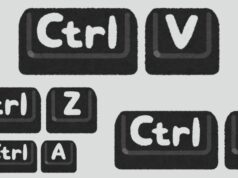The digital world took a quantum leap with the inception of Bitcoin in 2009.Through the ingenuity of the blockchain technology, industrial and enterprise industries can transfer uniquely encrypted data records through Bitcoin.
But as technology continues to improve leaps and bounds, Bitcoin, and other crypto technologies like Litecoin, Ethereum and DogeCoin, have become the number one payment gateways for a host of industries, including online gambling sites.
While Bitcoin, and other crypto currencies are sometimes used interchangeably with the term blockchain. However, blockchain is the foundation, the fabric which makes Bitcoin and similar crypto currencies work.
Because Bitcoin and blockchain technology are now inextricably linked to every facet of day to day life, including the health industry and government agencies, understanding how Bitcoin and blockchain will shape the digital future, is essential to stay with the trends.
Blockchain Blockchain is a decentralized and distributed ledger technology that enables secure, transparent, and tamper-resistant record-keeping. It consists of a chain of blocks, each containing a list of transactions. These blocks are linked together using cryptographic hashes, forming a continuous and unalterable chain.
The technology gained prominence with the introduction of Bitcoin, a cryptocurrency that uses blockchain as its underlying technology. However, the applications of blockchain extend far beyond cryptocurrencies. A central component of blockchain is decentralization. Traditional databases are often centralized, meaning they are controlled by a single entity. Because blockchain uses advanced cryptographic techniques to secure transactions, the data is decentralized and distributed across a network of computers (nodes). Each node on the network has a copy of the entire blockchain, and all nodes work together to validate and record transactions. Once a block of transactions is added to the blockchain, it is extremely difficult to alter or delete. This is due to the cryptographic hash functions and the consensus mechanism employed in the blockchain, making it resistant to tampering. It also makes the parties involved with the blockchain contract the data details.
Transparency helps to eliminate fraudulent activity and other costly mistakes. A Bitcoin transaction is what is known as a “contract.” These self-executing contracts operate with the terms of the agreement between buyer and seller and are directly written into code. Smart contracts automatically execute and enforce the terms and ultimately automate tasks.
Why Today’s Industries Trust Blockchain
As technology improves our daily lives, unfortunately, it gives cyber thieves the tools and the incentives to hold business ransom through ransomware, or sophisticated data breaches which can cause companies millions of dollars. Companies and especially the financial industry, are turning to Bitcoin to harness the blockchain technology to minimize hacking.
Also, as the financial industries continue to close bank branches at record numbers and are shifting to mobile banking, having nearly impregnable security and payment measures is essential to not only maintaining their bottom line but increasing it.
With blockchain, banks and the financial industry can help minimize fraudulent activity to protect their members’ accounts, because through smart contracts, bank customers can view all the financial details, and ultimately build long-term trust with financial institutions.
Patient confidentiality is the hallmark of trust between ordinary people and the medical industry.
Furthermore, laws like HIPPA (Health Insurance Portability Act of 1996), require strong enforcement of protecting and sharing a patient’s medical records. For this reason, the integration of blockchain technology into the medical industry is indeed creating transformative changes, addressing issues related to data security, interoperability, and efficiency.
Blockchain allows for finely customizable openness, ensuring that sensitive patient data is securely shared as needed.Also,blockchain technology helps eliminate errors between doctors and healthcare facilities that share records. Such practices can help safeguard a patient’s health and go a long way from preventing misdiagnosis and malpractice lawsuits.
As technology continues to improve by leaps and bounds, so do modern-day online casinos. Besides adopting Bitcoin and other alt-currencies like Ethereum and Litecoin as payment gateways, legions of online casinos are becoming 100% crypto. This means that they are turning to blockchain to moderate gaming results through random number generators to ensure random and fair results.
When plays gamble online at crypto casinos, they can view their transactions and results with total transparency, because they’ve entered into a smart contract along with the online casino. Through smart contracts, online casinos can save time and money, investing in customer support to help resolve financial conflicts because members can see for themselves in the blockchain details.
But perhaps the biggest contribution for blockchain technology is complete transparency and extended security for winnings. Due to blockchain’s encryption and storing data in nodes, it is highly difficult for outsiders to manipulate the real and accurate results for a player’s winnings.
Blockchain in the Supply Industry
When you go the grocery store and pack your items in your cart, or go to your local hardware store for example, you are seeing the supply chain in action. The process from getting the product from the farm or manufacturing plant involves many transactions, which gives cyber thieves, or human error, plenty of chances to disrupt the sensitive process. In recent years major suppliers have turned increasingly to blockchain technology to provide transparency in their transactions. Unlike cryptocurrencies that allow infinite and anonymous parties, supply chain blockchains tokenize transaction-related data. This involves creating unique and verifiable identifiers for various elements like purchase orders, inventory units, bills of lading, etc.
Participants in the supply chain have unique digital signatures used to “sign” tokens as they move through the chain. Every transaction phase is recorded in the transfers between stakeholders, creating an immutable and tamper resistant audit trail.



















